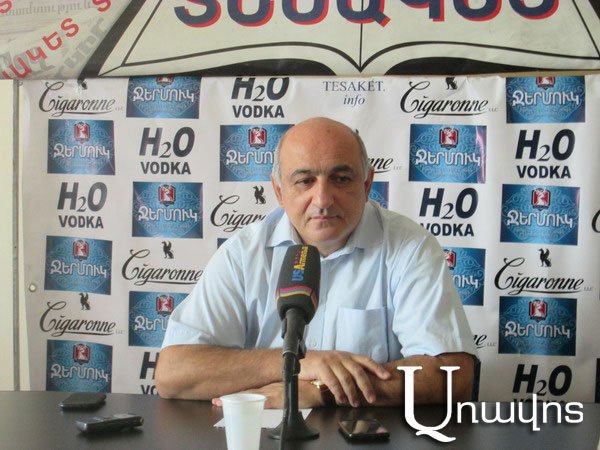Reasons that undermine the RA authorities to make its relations with the EU clear
The Chairman of the Yerevan Press Club, Boris Navasardyan, is sure that the level of Armenia’s constraint is as such today that it cannot have equally deep relationships with other unions. Note that recently, at the RA National Assembly, the Head of the South Caucasus office of “Friedrich Ebert” Foundation, Julia Bläsius, had expressed confidence that “Armenia may become the first country that simultaneously has close ties with Russia and the EU. According to the European official, it is not necessarily to face the option of “either-or”.”
In a conversation with Aravot, President of the Yerevan Press Club noted with regret that in this situation, it is no longer possible. In response to our question whether it stems from the decision of Armenia’s accession to the EaEU on September 3, Mr. Navasardyan responded as follows: “On September 3, it was just a statement but at the time when Armenia officially became a member of the EaEU, it quite restrained its capabilities in terms of relations with the third parties. Although it is not written in the EaEU document, however, from this economic dependence, political restrictions also derive from the dependence. There is a deepening of Armenia-Russia relations in the security sphere which also has an impact on the political relations. Today, Armenia’s degree of constraint is such that it cannot have equally deep relationships with other unions.”
To our observation that the different European officials voice messages on clarification of the Armenia-EU relations while the RA authorities fail to fulfill these clarifications as to what format and what frames these relationships should develop, Mr. Navasardyan reacted, “Our European partners realize the realities that are and have been created in Armenia. They suggest that Armenia cannot have an equally deep relationship with Russia, EaEU and on the other hand, with the EU. It is not the “either-or” resolution but entirely a different resolution. Armenia will have to form relations with EU only by the principle of residual. Certainly, our European friends do not allow themselves harsh and rude expression and say that we still have good chances. Armenia was given all the opportunities for the determination but given the fact that Armenia is constrained by already existing relations with Russia and as a member of the EaEU, and the EU, willy-nilly, must cope with the fact that its relations with Armenia will develop in so far as it does not stymie the relations with Russia and the EaEU.”
Read also
Boris Navasardyan stated that Armenia cannot have the same ambitions as the Eastern Partnership countries that have signed the Association Agreement or at least are not a member of the EaEU like Azerbaijan. To our reminder that the framework agreement phase is coming to end but so far there is no clarity from the Armenian side, so whether it is associated with the RA parliamentary elections in April, Mr. Navasardyan replied, “Yes, the RA authorities are restrained about the upcoming elections in Armenia. The RA authorities did not like to make the relations with the EU before the elections clear as they realize very well that Russia’s attitude to this fact is not unequivocal, and also, Russia’s influence on Armenia’s domestic political developments is serious. In these conditions, no one is willing to place them in a situation before the elections which may cause Russia’s discontent.”
Summarizing, Boris Navasardyan noted that the messages coming from the EU are also clear. They are trying to present the situation in a way that in terms of the relations with the EU, the doors are open before Armenia, and everything is left to the decision of Armenia.
Tatev HARUTYUNYAN,
“Aravot”























































